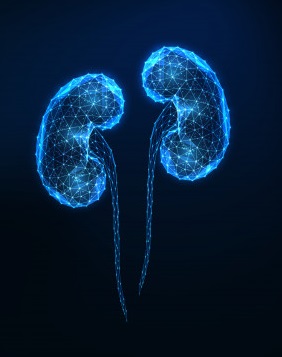Pyelonephritis – Symptoms, Diagnosis & Treatments
Pyelonephritis is a type of urinary tract infection due to some gram-negative bacteria. The infection usually started as a lower urinary tract infection. In Pyelonephritis, the bacterial pathogen can be travel up the ureters from the bladder to the kidney. As a result of it, these bacteria infect the renal pelvis and kidney. It is called as Pyelonephritis. The leading cause of acute Pyelonephritis is gram-negative bacterias. Escherichia coli is the most common pathogen for acute Pyelonephritis. In addition to Escherichia coli, some of the other bacterias are Proteus, Klebsiella, and Enterobacter.
Pyelonephritis is most common among women than men. Because the urethra of women is much shorter than the men. And also, there is a shorter distance between urethra and the anus of women than men. Therefore it is easier for bacteria to enter the body.

Risk Factors of Pyelonephritis
- Diabetes mellitus.
- History of UTI.
- Weak immune system.
- Women who are menopausal or pregnant.
- Stress urinary incontinence.
- Structurally of the functionally subnormal genitourinary tract.
- Enlarged prostate.
- Previous urinary tract surgery.
- Nerve or spinal cord damage.
Signs and Symptoms of Pyelonephritis
- Fever greater than 102 Fahrenheit.
- Flank pain, back, side or groin pain.
- Burning sensation with urination.
- Nausea and vomiting.
- Frequent urination.
- Cloudy urine.
- Pus or blood in the urine.
- Fatigue.
- Bad smell in urine.
How to Diagnose Pyelonephritis
- History and physical examination.
This is the most important method for diagnosing. - Analyzing the urine sample.
Urine full report, urine culture and AAST. - X-ray.
- Ultrasound scan.
- CT scan .
Differential Diagnose
Physicians will consider other disorders as well when the patient presents with fever and flank pain.
- Appendicitis.
- Abdominal abscess.
- Cholestasis.
- Urinary tract obstruction.
- Pancreatitis.
- Pelvic inflammatory disease.
- Ectopic pregnancy.
Treatments for Pyelonephritis
Treatment depends on the severity of symptoms such as investigation result (most important urine culture result), age, pregnancy, allergy history of medication. Furthermore, Analgesics and antipyretics medication use with antibiotics to prevent fever and pain.
People who do not require hospitalization can get medical advice, and treatment can be done from home. In other words, it is called “outpatient therapy”. According to medical advice, the patient can take oral antibiotics that can fight the most common type of bacteria. These are suitable if the culture reports are available, and bacteria are sensitive to the advised antibiotics.
If you have signs and symptoms, you must hospitalize to get treatments according to medical supervision. in other words, it is called “inpatient treatment”. In the hospital, health care professionals may give Intravenous antibiotics to prevent infection and Intravenous fluids to avoid dehydration. The initial treatments should be modified according to the result of the urine culture, and sensitivity. Usually, antibiotics need to continue 7days/14days according to medical advice. After the treatment duration, the healthcare professional at health centers will repeat urine culture. In that investigation, we can ensure that the infection has completely gone away
Potential Complications of Pyelonephritis
- A possible complication is chronic kidney disease (Permanently damage the kidney). That is rare, but it is possible.
- Acute kidney failure.
- Recurrent kidney and urinary tract infection.
- Kidney abscess.
- Kidney scarring.
- Sepsis.
How to prevent Pyelonephritis
- Drink plenty of water.
Drinking plenty of water can help to remove the bacteria from the body with urine. - Avoid delaying urination.
Urination must be when it needed. As a matter of fact, you must not delay urination. - Wiping from front to back.
After the urination or bowel movements, wiping or cleaning should be done from the front side to the backside. Hence, it will help to prevent bacteria spread to urethra from anus. - Urinate after intercourse.
Urinate after intercourse will help you to flush out the bacteria from the urethra. - Avoid feminine products in the genital area.
Disclaimer
If you have symptoms mentioned in this article, please make an appointment to see a qualified medical professional. Furthermore, all the medications and treatments must use according to medical advice. To conclude, this article is written only for you to improve knowledge about diseases.
Pingback: Refuah Health Center - Why I chose them for my medical needs?US Health Centers
Pingback: Cholecystitis - Symptoms, Diagnosis & Treatments - US Health CentersUS Health Centers